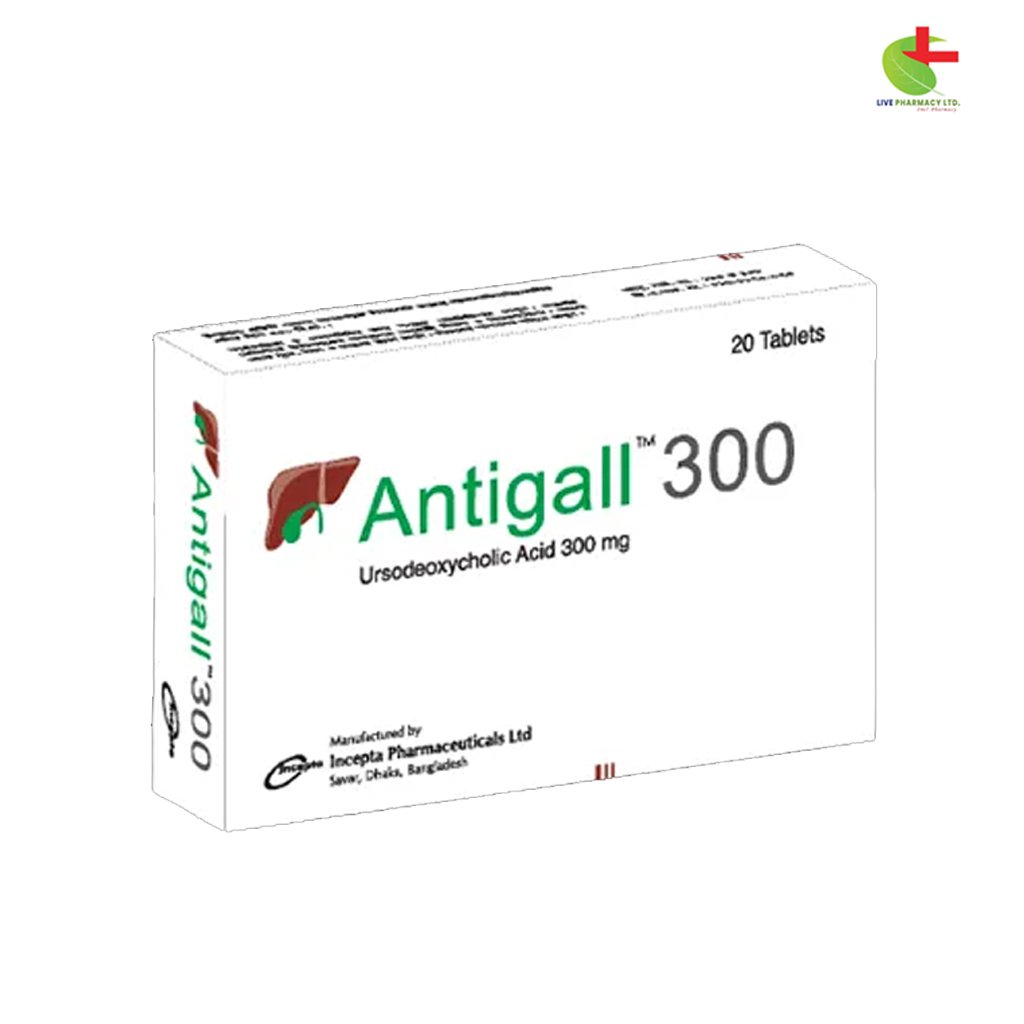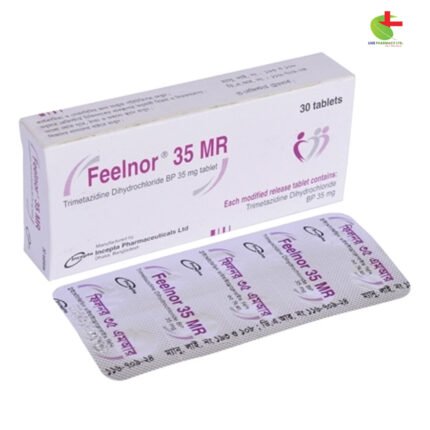Antigall 300
220.00৳ Strip
- Antigall is used to dissolve cholesterol gallstones and treat liver conditions like cholestasis, viral hepatitis, and alcoholic fatty liver.
- Contains Ursodeoxycholic Acid, which reduces cholesterol secretion in bile and improves liver function.
- Effective for managing primary biliary cirrhosis (PBC) and non-alcoholic steatohepatitis (NASH).
- Always follow the guidance of a healthcare provider for proper dosage and use.
 Brand
Brand
|
Incepta Pharmaceuticals Ltd |
|---|---|
 Generics
Generics
|
Ursodeoxycholic Acid |
 Type
Type
|
Tablet |
Indications
Antigall is prescribed for the treatment and management of various hepatobiliary conditions, including:
- Cholestasis (Jaundice)
- Viral Hepatitis
- Alcoholic Fatty Liver Disease
- Primary Biliary Cirrhosis (PBC)
- Primary Sclerosing Cholangitis (PSC)
- Gallstone Dissolution
- Non-Alcoholic Steatohepatitis (NASH)
Always consult a registered healthcare professional before use.
Description
Antigall is a therapeutic solution designed to reduce cholesterol saturation in bile, promoting the gradual dissolution of cholesterol-based gallstones. By lowering cholesterol secretion into bile and increasing bile acid secretion, Antigall helps solubilize cholesterol without decreasing phospholipid levels, aiding in effective gallstone management.
Pharmacology
Antigall contains Ursodeoxycholic Acid, a naturally occurring bile acid that regulates bile composition. It works by:
- Decreasing cholesterol absorption in the intestine
- Suppressing liver cholesterol synthesis
- Enhancing bile secretion
These actions help convert supersaturated bile into unsaturated bile, facilitating cholesterol crystal removal from the gallbladder. Ursodeoxycholic Acid also provides hepatoprotection by:
- Shielding liver cells from toxic bile acids
- Stimulating liver bile secretion
- Preventing liver cell death (apoptosis) induced by bile acids
It is absorbed in the upper intestine, reaches peak serum concentration in 30 to 150 minutes, and has a biological half-life of 3.5 to 5.8 days.
Dosage & Administration
- Gallstone Dissolution: 8-12 mg/kg/day (single dose at night or divided)
- Primary Biliary Cirrhosis: 10-15 mg/kg/day (2-4 divided doses)
- Acute Viral Hepatitis: 600 mg/day
- Alcoholic Fatty Liver: 300 mg/day
- Primary Sclerosing Cholangitis: 25-30 mg/kg/day
- Non-Alcoholic Steatohepatitis: 13-15 mg/kg/day
Always follow your healthcare provider’s instructions.
Interaction
Antigall should not be used with medications like oestrogenic hormones that increase bile cholesterol. Concomitant use with bile acid-binding agents, such as antacids, cholestyramine, or charcoal, may reduce Antigall’s effectiveness.
Contraindications
- Non-functioning gallbladder
- Calcified and pigmented gallstones
- Inflammatory bowel disease
Side Effects
Common side effects may include:
- Nausea, vomiting, diarrhea
- Gallstone opacification
- Pruritus (itching)
Pregnancy & Lactation
Pregnancy Category B. No harmful effects have been reported in pregnant women. Antigall is often used to treat cholestasis during pregnancy without adverse effects. It is also considered safe for breastfeeding, with no known risks to infants.
Precautions & Warnings
Use Antigall cautiously in individuals with existing liver conditions. Regular monitoring is recommended during treatment.
Therapeutic Class
- Anti-Gallstone Drugs (Bile Acids)
Storage Conditions
Store below 25°C in a cool, dry place. Keep away from light and moisture. Keep out of the reach of children.













Reviews
There are no reviews yet.